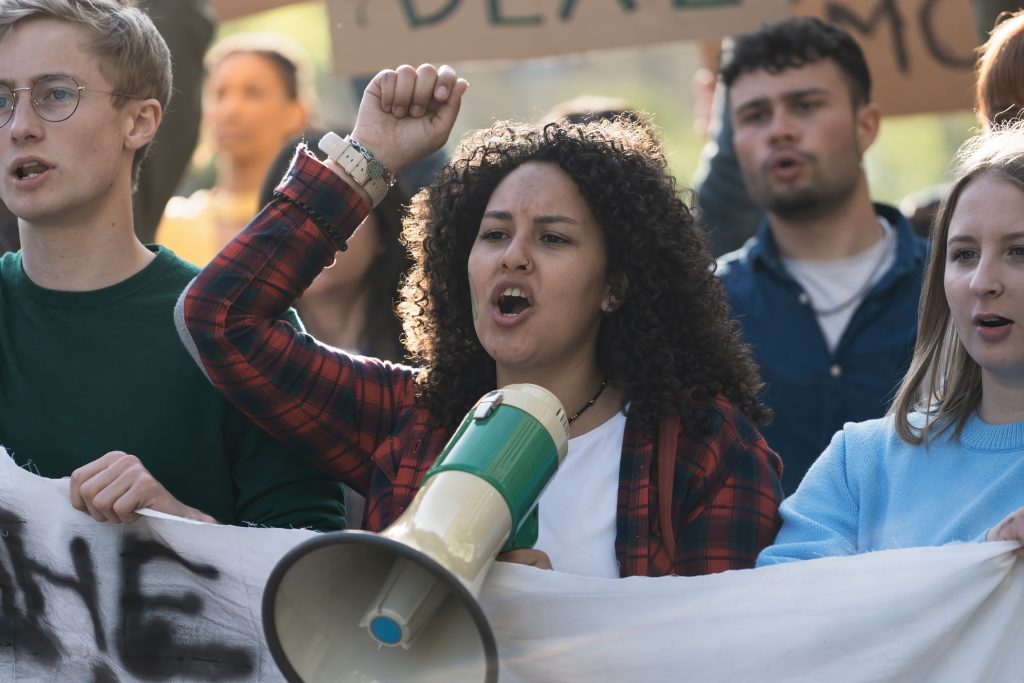The Pro-Palestinian encampment came down on the UC Berkeley campus on Wednesday following the University and protestors coming to an agreement. Protestors agreed to remove the encampment on campus while the University promised to rigorously examine the school’s investment in Israel.
Since late April, several pro-Palestine, pro-Hamas protests and encampments have turned into mass arrest events in California. The first such event occurred on April 24th when protesters refused to leave an encampment at the USC campus in Los Angeles. Law enforcement subsequently moved in, razing the encampment and arresting 93 protestors, of whom over 50 were students. On April 30th, another 35 students were arrested at Cal Poly Humboldt in Arcata when, after a week of occupying 2 buildings on campus, law enforcement officers retook both in a major sweep. Another encampment bust on May 2nd, this time at UCLA, destroyed one of the largest protester encampments in the country, leading to 210 arrests. Less than a week later, 65 were arrested at UC San Diego.
Through all of this, UC Berkeley, which has typically been a hotbed of protest activity in decades past during the Vietnam War, Apartheid and the Occupy movement, has been fairly low-key. While UC Berkeley had one of the first encampments in the country with protests a constant on campus, they have not escalated or got disruptive to the point of arrests. Nonetheless, Berkeley’s protests have still been straining on the campus, with some violence occurring and hundreds protesting on campus. Fears of protests and violence continuing in the fall semester even had the campus cancel the U.S. Senate debate between Congressman Adam Schiff (D-CA) and former baseball star Steve Garvey (R) that had been scheduled for later this year.
But on Tuesday, Pro-Palestinian protestors claimed a partial victory. UC Berkeley Chancellor Carol Christ, in a letter, said that the University could not divest from Israel as individual Universities in the University of California system cannot make financial decisions. She explained that all financial decisions fell to the UC Board of Regents. However, she said that the University would “initiate a rigorous examination” of the school’s investments, as well as make a public statement supporting a permanent ceasefire in Gaza and investigate discrimination complaints against Palestinian students on campus.
“The University of California has decided in the past to divest from businesses that were determined to not be aligned with our values,” Christ said on Tuesday. “We should examine whether UC Berkeley’s investments continue to align with our values or should be modified in order to do so.”
“I remain deeply concerned about the death and destruction of critical infrastructure in Gaza, and about the ongoing impact on our university and its community. For those reasons, I personally support the efforts of our government to promote a ceasefire, gain the release of hostages, and initiate a process for negotiations that could bring the current conflict to a permanent end.”
“I am greatly relieved that we were able to bring this protest to a peaceful end. We stand ready, as always, to also meet with any students from any community who wish to present requests and ideas for institutional action in support of their needs, interests and/or values.”
End of the encampment after 22 days
In turn, protestors agreed to remove the encampment on campus after 22 days up, ensuring a quieter than expected end of the year. While protesters did not get their goal of divestment from Israel, they still claimed victory on Tuesday and Wednesday.
“We realized what we are kind of able to get from the university, in terms of our demands being met, have kind of been met to some extent,” said UC Berkeley divest coalition camp organizer Yazen Kashlam. “Honestly a few months ago it would have been surprising to get this document. The fact that I get to say there is more to win, there is still another fight. There is still another campaign that’s within reach.”
However, Jewish students and others on campus say that things are still rough. Many Jewish groups currently have a lawsuit going against UC Berkeley over antisemitism incidents, with students say they are feeling threatened.
“I’ve never seen this much hatred toward my people,” said David, a Jewish student, to the Globe on Wednesday. “I know the encampment is gone, but that energy is still there. To be clear, I’ll always be for Israel and for calling for the release of the hostages.”
“And I really thought that healthy debate could be had on campus. I’m for Israel as a country and defending itself, and you would think that in college there would be respectful debate between both sides of the Gaza issue. But no. Instead I see people calling for the death of Jews and wanting Israel to fall. There have been very few incidents of Jewish counter protesters doing anything nearly that bad. The UCLA thing was one of the only incidents, but even then that’s because the campus didn’t allow police until it was too late. Instead we have to endure all of this hate speech.”
“The majority of Jewish students on campus don’t feel safe anymore, and I’m even getting that vibe now from some Catholic and other Christian friends of mine solely because they support Israel too. What the Chancellor did was a slap in the face to us all, just plain ignoring what we are going through. Yeah, that encampment is gone and a lot of the crazy protestors are now leaving the campus alone, but look at the cost of it.”
In addition to UC Berkeley, other Universities, such as the University of San Francisco, have also recently reached agreements with protestors to reexamine investments in Israel in exchange for the taking down of encampments. More agreements with protestors at other California Universities are expected soon.
Originally published by the California Globe. Republished with permission.
For more great content from School Reform News.
For more from The Heartland Institute.
